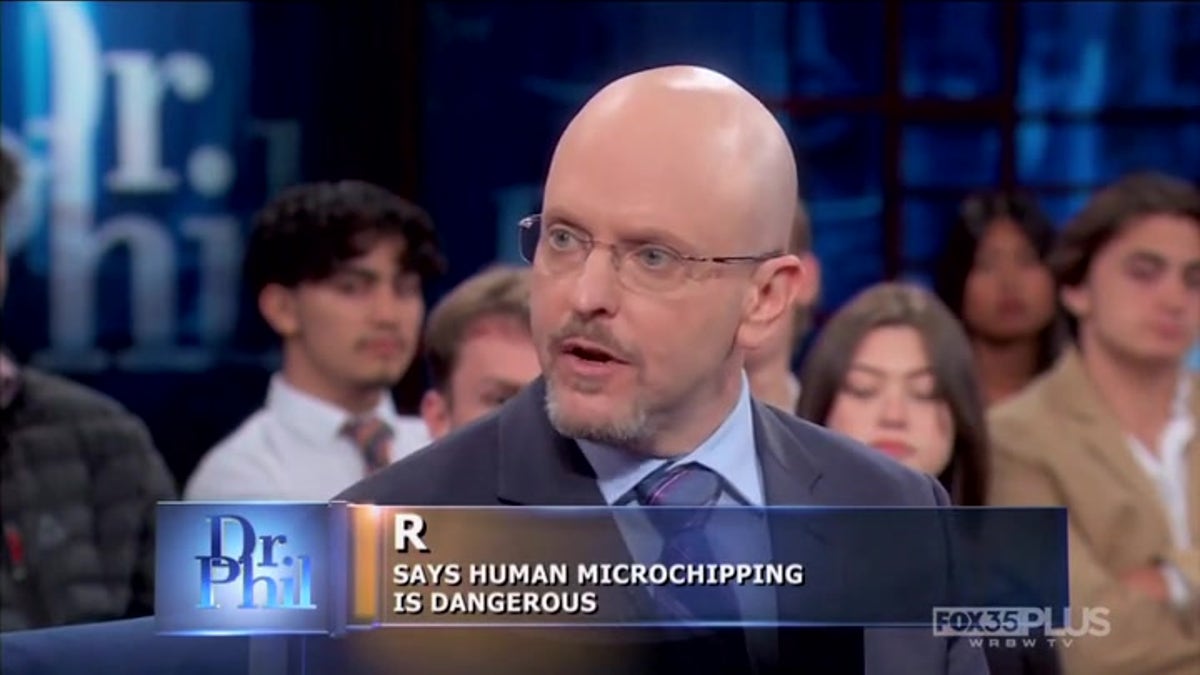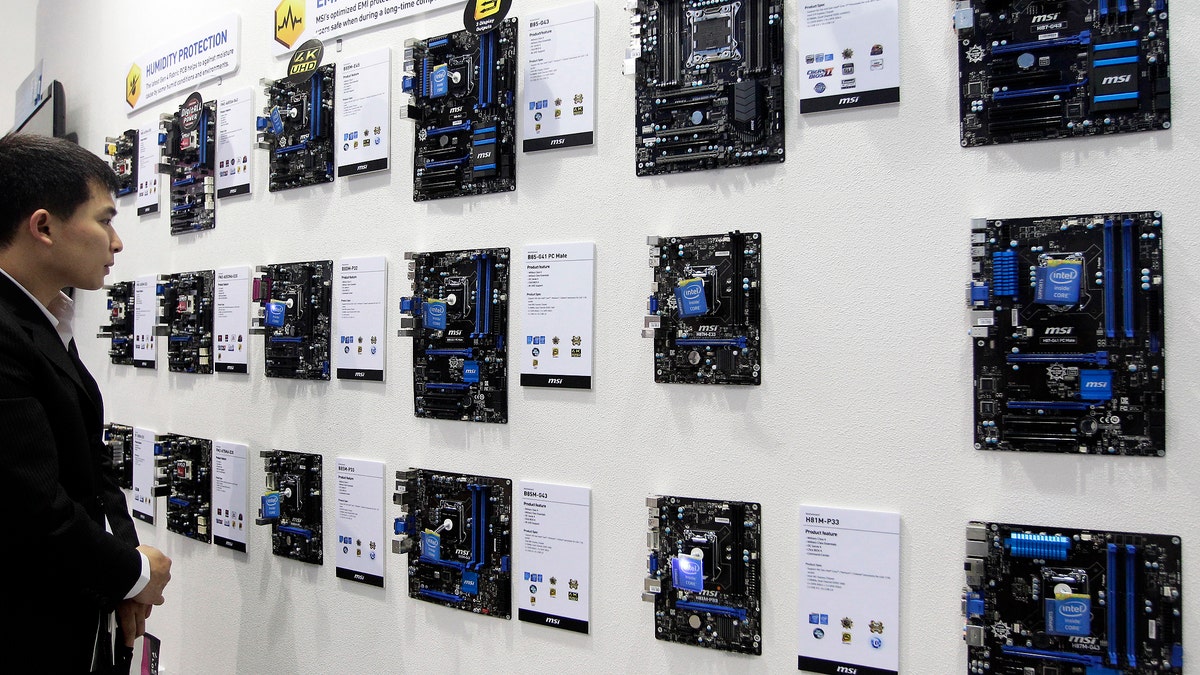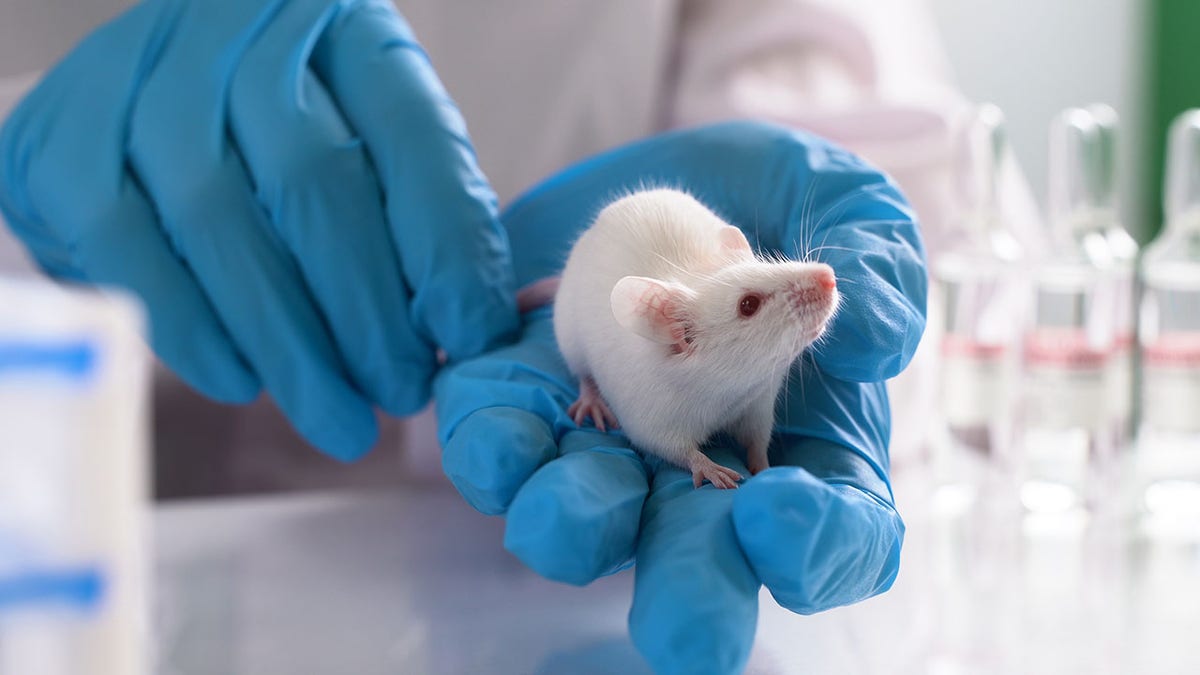Dr. Phil guests debate whether microchipping humans is safe
Dr. Phil hosted a debate over the implications of implanting microchips into human beings, a topic people found controversial for a variety of reasons.
Tuesday's episode of Dr. Phil featured two guests sparring over a debate surrounding whether humans should be implanting microchips in their body.
"Surgically implanting computers into humans is dangerous. Just how dangerous? We don’t know yet, because that’s how they release technology," A critic of microchip implants calling himself "R" said in his introduction.
He went on to say humans who get microchips implanted in them would likely learn far too late about their risks of the technology.
"As long as it doesn’t kill you instantly or almost instantly, it’s deemed safe for sale. And then it’s 5, 10, 20 years later we learn that it causes cancer, autism, birth defects, and more," R said. "But by that point we’ve become so dependent on the technology we choose to live with the disease."

A critic of microchipping humans offered his opinions on an episode of Dr. Phil.
PEOPLE SHOULD ‘PASS A TEST’ TO PROVE THEY’RE ‘INCOME-WORTHY' OF HAVING KIDS, DR. PHIL GUEST ARGUES
R suggested technology inside of one’s body is a dangerous new field of study.
"But these exposures, these are crazy. We’re talking about literally inside the body, point-blank range with zero distance day in day out for years on end. What impact will that have? We don’t know. But I can tell you it won’t be good," he said.
In Dr. Phil’s studio, founder and CEO of VivoKey Technologies, Amal Graafstra, pushed back against R’s claims.
"I think we can just nip this all in the bud right now because these devices are passive. That means when they’re not in the seconds of exposure of a very low frequency, low power field, they’re dead. They’re inert. They have no energy whatsoever," he said.
R asked, "What does having that chip in your body for 20 years do on average to a population of 20,000 people?"
Graafstra responded, "Nothing. We’ve used this exact material since the ’70s. There’s been almost zero evidence of any kind of irritation."

June 4, 2013: A visitor looks at motherboards at the MSI booth at the 2013 Computex exhibition. The blurring distinction between humans a technology has remained a mainstay of science fiction, but appears to be steadily becoming more of a reality. (Reuters / Pichi Chuang)
EXTINCTION ACTIVIST WANTS HUMANS TO VOLUNTARILY DIE OUT: ‘FEED ’EM DON'T BREED ‘EM’
After R cited past studies, Graafstra appeared to put them into context for Dr. Phil and the audience.
"There are three studies that were referenced, but these are all studies that were tumor studies in animals either genetically engineered to get tumors in order to study the tumors or chemically-induced tumors," he said. "The outcomes of the studies were noted that, ‘oh, you know what, around the implants in these animals we’re using to I.D. them, there were a tumor, but alongside 50 other tumors in these bodies.’ And it wasn’t all. It was about 8% of those animals."
He went on to suggest the information is used in bad faith.
"But there are people that want to benefit off of this, people that write certain kind of books and certain kind of scare tactics, and they use these studies to say, ‘look, it’s bad and this is all coming for you, and we want to sell you a book,’" he said.
Dr. Phil interjected, "you have to look at the risk reward ratio. I mean, for example, we’ve got 1.43 million people globally that have pacemakers in their body that use electrical impulses. We have 200,000 people that have brain implants right now that are used to control Parkinson's and other type things."

Testing on animals remains a controversial practice, but advocates say that it can help prevent human suffering. (iStock)
CLICK HERE TO GET THE FOX NEWS APP
R did not appear to disagree, but suggested some technology is worth the risk.
"Yeah, no, the benefits there are incredibly tangible. They’re immediate. They’re lifesaving. They alter the quality of life. That is, I would say, quite different from opening your Tesla."









































